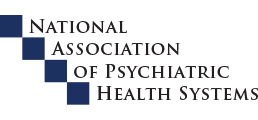Sierra Tucson offers effective, comprehensive treatment for individuals struggling with addiction and mental health concerns. Learn more about the signs and symptoms of kratom abuse.
Understanding Kratom Abuse
Learn about kratom abuse
Kratom, a relatively new psychoactive substance being abused in the United States, hails from Thailand and other Asian countries, and has been used for medicinal purposes to relieve pain. However, in this country, this drug is often abused as a stimulant when it is taken in small amounts, though it is also misused as a sedative when consumed in greater quantities. Whether brewed as a tea, pressed into tablets, or made into a concentrated liquid, kratom can pose a variety of risks to a person’s health when it’s abused recreationally.
If you’re someone who has developed a problem with kratom, experienced withdrawal when not using this drug, and endured a variety of negative consequences because of your substance abuse, you may be at that point where you’re considering professional treatment. Luckily, there are many options for care that you can access that are capable of changing your life for the better. When you begin a program that is equipped to care for the complex nature of kratom addiction, it’s possible for you to truly reclaim your life from substance abuse and begin living to your potential.
Statistics
Kratom abuse statistics
Despite being a relatively new drug in the United States, there are studies that prove that this substance can be addictive, as it’s been shown that almost eighty percent of people who abuse kratom are unable to end their misuse of this substance without help. Severe kratom withdrawal is also believed to affect half of those who abuse this drug, which makes it especially dangerous to abuse considering the painful withdrawal symptoms that this substance can trigger.
Causes and Risk Factors
Causes and risk factors for kratom abuse
If you’re wondering what may have led you to abuse a drug like kratom, it could be helpful to read what some researchers and experts on addiction have discovered. The following is a summary of these findings, and may explain why you’re grappling with a substance abuse problem:
Genetic: It’s widely known that substance abuse and addiction can occur within families. In fact, researchers have isolated certain genes and gene clusters that can make some people more vulnerable to grappling with the abuse of kratom or other drugs. Therefore, if you’re abusing this substance, it may be due in part to your genetic background.
Environmental: The places you spend most of your time can certainly influence whether or not you will misuse kratom. Additionally, the individuals you associate with can be just as impactful when it comes to drug abuse. Given these facts, if you spend time with or around people who abuse kratom, your risk for this sort of substance abuse increases. Furthermore, if you can easily get kratom, lack coping skills, and/or have subpar support, you may be more likely to develop a problem with this drug.
Risk Factors:
- Family history of substance abuse
- Having easy access to kratom
- Having peers who abuse drugs like kratom
- Lacking appropriate social support
- Lacking healthy strategies for coping with stress and emotional pain
- Personal history of substance abuse
- Personal or family history of mental illness
Signs and Symptoms
Signs and symptoms of kratom abuse
If you’re wondering if you’ve developed a problem with kratom, you can take stock of how your life has been going since you’ve been abusing this drug and note the presence of the following symptoms. If many of these symptoms are presently part of your life, it’s a good idea to consider seeking treatment at this time:
Behavioral symptoms:
- Being overly talkative
- Erratic and sometimes violent or aggressive behaviors
- Failing to uphold personal responsibilities due to the abuse of kratom
- Preferring to abuse kratom over engaging in once enjoyable activities
- Spending a great deal of time trying to get, abuse, and recover from the misuse of kratom
- Tearfulness
- Trying but being unsuccessful at stopping one’s misuse of kratom
- Abusing kratom despite knowing that it has caused problems within one’s life
- Abusing kratom in greater amounts and over a longer period of time than intended
- Abusing kratom when it’s physically hazardous to do so
- Wanting to stop abusing kratom, but being unable to do so
Physical symptoms:
- Breathing problems
- Changes to color of one’s skin
- Constipation
- Experiencing withdrawal when not able to abuse kratom or when trying to stop misusing this drug
- Inability to experience pain
- Increased energy (when taken in smaller doses)
- Nausea
- Profuse perspiration
- Sedation (when taken in larger doses)
- Shakiness or tremors
- Sleep disturbances
- Tolerance for kratom
- Vomiting
- Weight changes
Cognitive symptoms:
- Cravings for kratom
- Decreased sex drive
- Delusions
- Difficulty concentrating (when a large amount of kratom is consumed)
- Hallucinations
- Heightened focus when working on tasks
- High levels of alertness
- Panic
- Poor decision-making
Psychosocial symptoms:
- Agitation
- Anxiousness
- Depressed mood
- Emotional detachment from others
- Emotional outbursts
- Irritability
- Oscillating moods
Effects
Effects of kratom abuse
When you remain a long-term abuser of kratom, it’s possible that you may experience a variety of unpleasant effects as a result. However, when you begin treatment within a reputable and comprehensive addiction treatment program, you can be successful in avoiding the following consequences:
- Chronic unemployment
- Decline in occupational functioning
- Divorce
- Family conflict
- Gastrointestinal problems
- Interaction with the legal system due to poor decision-making while under the influence of kratom
- Job loss
- Loss of child custody
- Onset of mental health disorder symptoms
- Polysubstance abuse
- Psychosis
- Respiratory problems
- Sexual dysfunction
Co-Occurring Disorders
Kratom abuse and co-occurring disorders
If you should seek treatment to recover from a kratom abuse problem, it’s important to know that your treatment needs will be assessed to determine if you’re suffering from another addiction or co-occurring mental health disorders at the same time. For example, you may present with symptoms synonymous with the following disorders and require care for them at the same time as services for a kratom abuse problem:
- Depressive disorders
- Generalized anxiety disorder
- Other anxiety disorders
- Other substance use disorders
- Panic disorder
- Stimulant use disorder
- Tobacco use disorder
Withdrawal and Overdose
Effects of kratom withdrawal and overdose
Effects of kratom withdrawal: If the following symptoms begin happening to you when you’re no longer abusing kratom, you may be experiencing withdrawal. Kratom withdrawal typically signifies that your body has become tolerant of this drug, which is a telltale sign that you may require professional help to defeat your substance abuse problem:
- Depressed mood
- Diarrhea
- Irritability
- Mood changes
- Muscle aches
- Panic
- Restlessness
- Runny nose
- Tearfulness
Effects of kratom overdose: Taking too much kratom can significantly affect your health and wellbeing. In fact, it’s possible that an overdose on this drug can happen. If any of the following effects occur, you may be experiencing an overdose and need medical help quickly:
- Agitation
- Coma
- Delusions
- Extreme drowsiness
- Hypertension
- Increased heart rate
- Irritability
- Nausea
- Seizures
- Vomiting













